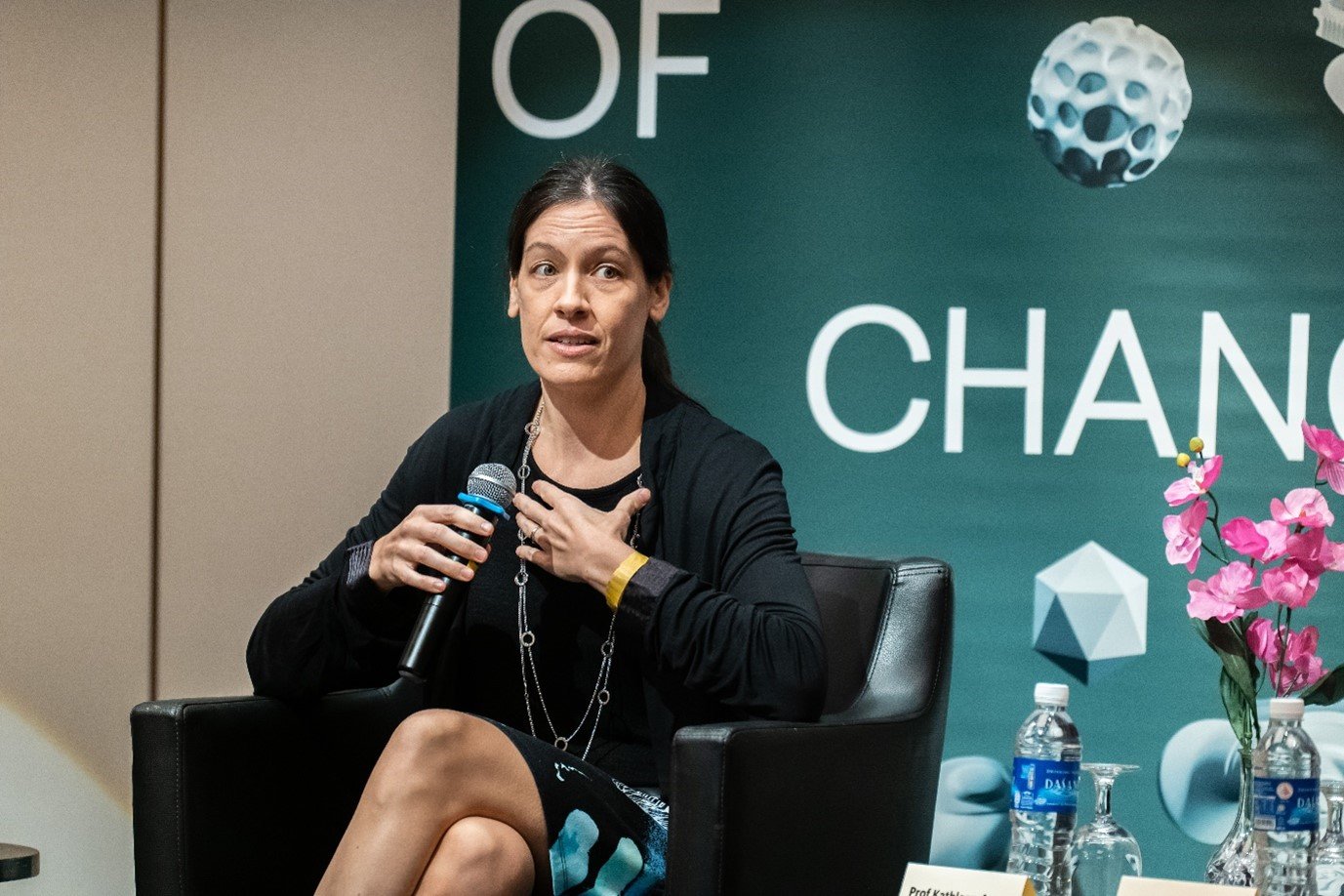Mental Wellness Through Music
(From left) Associate Professor John Wong, NUS Lin Jo Yan and Yeo Boon Khim Professor in Mental Health and Neuroscience, and Director of the NUS Mind Science Centre; Dr Kathleen Agres, Assistant Professor, NUS Yong Siew Toh Conservatory of Music, and Director of the NUS Centre for Music and Health; and Ms Eileen Chai, Co-Founder of 3am Music Collective.
People can build emotional resilience, cope with mental conditions and improve their mental health by producing and listening to music, said three speakers at the National University of Singapore (NUS) Giving Experience Leadership Series session held on 20 April 2022. The session, titled ‘A Conversation on Emotional Resilience – Finding Emotional Well-Being Through Music’, explored the power of music to transform lives positively through an engaging discussion.
Associate Professor John Wong, the NUS Lin Jo Yan and Yeo Boon Khim Professor in Mental Health and Neuroscience, and Director of the NUS Mind Science Centre, highlighted the clinical use of music in therapy to help people. This includes singing, playing instruments and listening to as well as composing music.
“You don’t need musical skills or talent to participate in music therapy. It has been shown to reduce stress and improve moods. If you’re dealing with a mental health disorder, it can also help you to explore your thoughts and feelings, communicate and express yourself effectively, and boost your mood, concentration and coping skills,” said Assoc Prof Wong.
In fact, research has shown that the primary reason people listen to music is to change or enhance their mood, shared Dr Kathleen Agres, Assistant Professor at the NUS Yong Siew Toh Conservatory of Music. She has worked with music therapists and advocates the use of music-based interventions for health and well-being.
She pointed to an array of studies detailing how taking part in musical activities can increase confidence and self-esteem in youth, abuse victims and adults with mental health conditions, encourage social bonding and a sense of belonging, lower anxiety and depression, and even foster resilience in people with serious illnesses, such as those undergoing cancer treatment.
Dr Agres shared how therapies that incorporated musical activities are highly effective and led to positive outcomes for patients who have various mental or physical health conditions.
“Music is effective as it taps into many cognitive and emotion processing centres in the brain. We listen and move to it, see people make it, and touch instruments. Rhythmic entrainment, where our movements are synchronised to outside cues like the beats in music, also helps patients. People with Parkinson’s disease walk more fluidly when they listen to music,” she elaborated.
Dr Agres is currently working on several projects, including a drumming and dancing programme for students that helps to relieve their stress and facilitate social wellness.
Ms Eileen Chai, a former national athlete turned musician and educator, recounted how the stress and challenges she experienced as a young gymnast, which led to a diagnosis of a mental health condition when she was older, pushed her to use her passion for music for good.
She has founded or co-founded programmes under the Chai360 musical ecosystem, such as Music Sparkles SG, Strings for Kindness, 3am Music Collective, The Violin Travels and Silver Everbright, where people from all ages and from all walks of life, come together to chat about, collaborate and make music.
“Our mission is to give through music, since we know that music can help a lot of people. We use music to empower and uplift the spirits of children, youth, adults and seniors, so that we can bring joy, happiness and love to people all around the world,” she said, sharing her motivation for establishing the programmes.
Ms Chai performed a special piece she composed titled ‘Everything is Possible’.
Assoc Prof Wong, who also moderated a question-and-answer section, concluded: “Music can be restorative and curative. Music, and the making of music, whether through singing or playing of instruments, has been proven to be important and effective in many contexts.”
Visit this website for more information on the Mind Science Centre.



